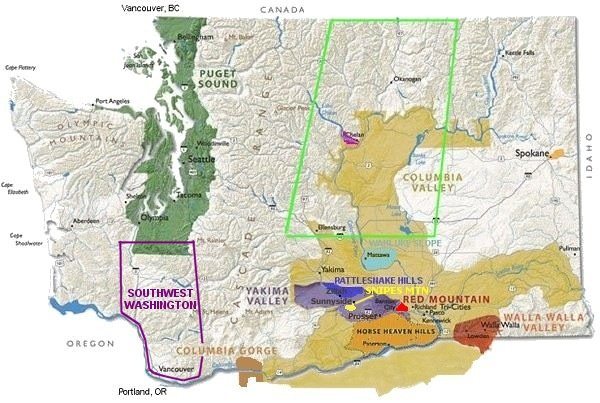Two wine neighbours – two approaches to liquor regulation
BC Wine Lover welcomes Mark Hicken of WineLaw.ca
This week is a significant one for the reform of wine distribution and regulation in the Pacific Northwest. It's interesting to look at the changes that are happening in the neighboring jurisdictions of British Columbia and Washington state, particularly as those changes relate to the modernization of regulatory frameworks that stem back to Prohibition. Here's a summary of what's happening.
Washington State. On Friday June 1st, Washington will completely privatize its liquor distribution system, moving to "open state" status after decades of being one of a diminishing number of "control states" in the U.S. (for more info, see Tom Wark's article: Should Alcohol Bureaucrats Be Dissing the Will of the People?). Up to now, Washington maintained overall control of liquor distribution in the state through the use of government wholesale distribution warehouses and by restricting the sale of spirits to government operated liquor retail stores. Beer and wine, however, has long been available in grocery stores and private retailers following earlier reforms. The new system, which was mandated by last November's successful Initiative I-1183, will remove all government participation in the wholesale and retail liquor business. Instead, Washington state will move to becoming a tax collector and regulator, functions that lack the conflict of interest inherent when the state is also involved in the business that it is supposed to be regulating. The taxation/regulation function is the system that nearly all governments in the world follow, particularly those where there is no legacy of Prohibition.

British Columbia. Here in Canada, changes are also on the horizon, albeit of a different nature from our southern neighbor. On Tuesday May 29th, Bill C-311 (which would amend the Importation of Intoxicating Liquors Act to permit the inter-provincial shipment of wine for personal use in certain circumstances) will return to the House of Commons for third reading and, hopefully, a final vote before heading to the Senate. If and when this Bill passes, Canada will finally jettison its Prohibition-era constraint on shipping wine from one province to another: a problem that has been mostly solved in the United States through two decades of reform efforts and one very influential Supreme Court decision (Granholm v. Heald). This federal level change would be hugely beneficial to the expansion of the Canadian wine industry and the development of Canadian food and wine culture in general.
At the provincial level, the Government of B.C. is also in the process of re-examining its liquor distribution system. The Government has already passed some smaller reforms including caterers' licenses and has mused about joining the civilized world by permitting corkage (which is currently illegal). However, the biggest possible change is the "Distribution of Liquor Project" (DLP) which essentially asks private companies to bid on the management of the government wholesale distribution system and also to provide ideas on how to re-structure it. However, B.C. has chosen to look to Alberta for the distribution model for the DLP rather than Washington. The DLP proposes that BC replace the "government monopoly" distribution system with a single private operator under contract to the government. This type of modified "control state" structure was rejected in Washington and the process in B.C. has already been criticized by various groups here. However, while the DLP will reduce competition at the wholesale level, it does provide an opportunity to address many structural problems in the current government run system including supply chain inefficiencies, limits on product selection, conflicts of interest and a byzantine wholesale pricing model. B.C. consumers have been negatively affected for decades by these problems, which along with excessive levels of taxation, have resulted in some of the highest prices for wine in the western world. It is currently too early in the DLP process to comment on any possible effects on pricing.
****
The bottom line on these changes is an interesting comparison. Washington will now join the majority of the world by rejecting the Prohibition-era control mentality and becoming an "open or free state" with respect to liquor regulation. British Columbia, on the other hand, has chosen to update the control mentality a bit rather than jettison it. B.C. will remain as a "control state" albeit one that may become more efficient. In both jurisdictions, the ultimate success of any changes will ultimately be judged by consumers (and voters) on the basis of pricing and selection. We'll have to wait to see on that one in both places … although answers from Washington may come as soon as this Friday.
– post by Mark Hicken

